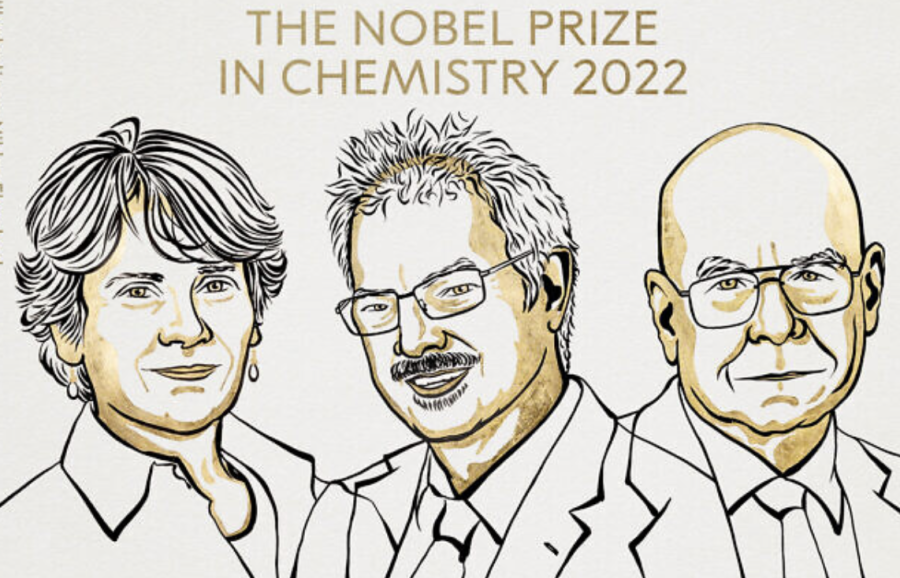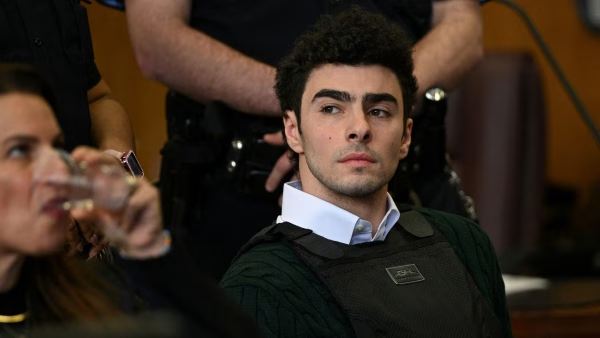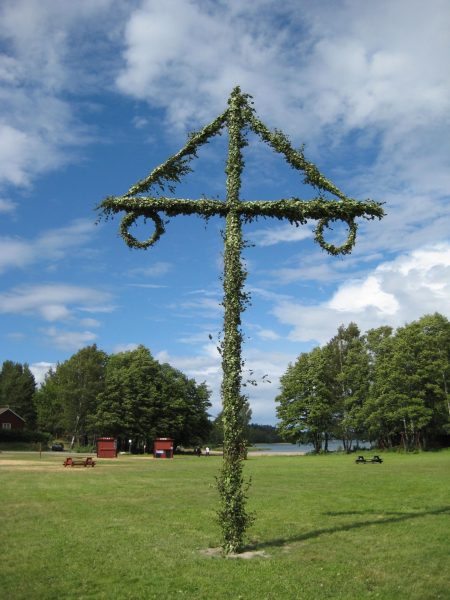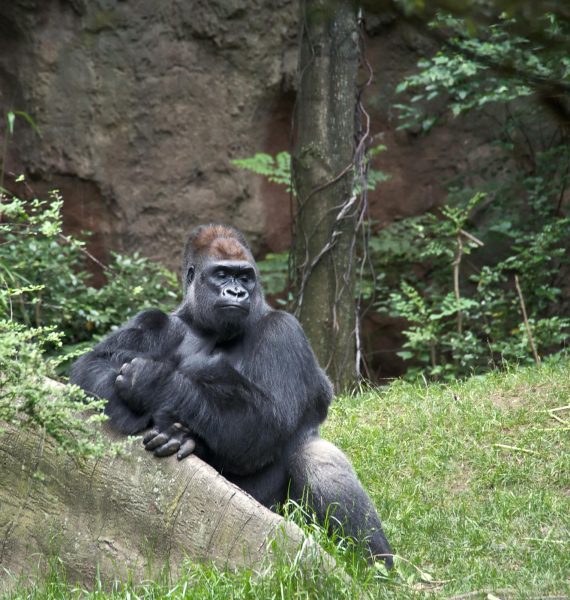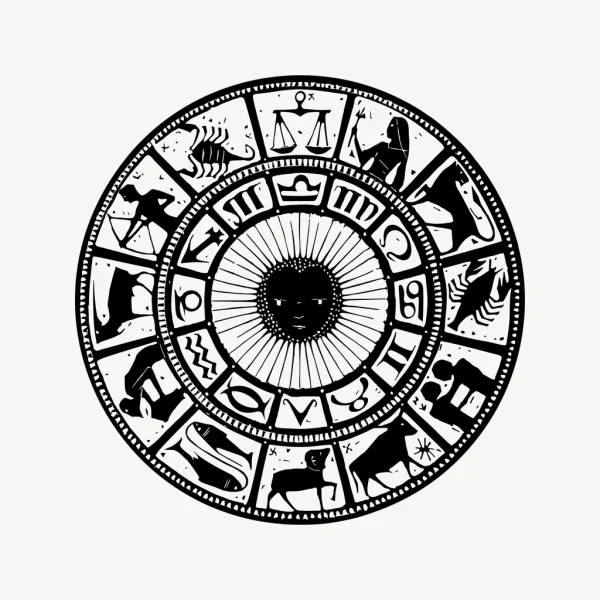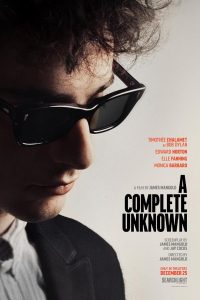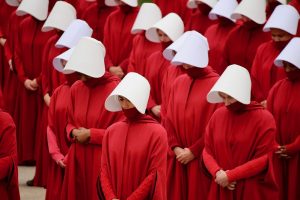And the winner is… science! Meet the Nobel Prize winners of 2022
October 15, 2022
The Nobel Prize winners of 2022 honor accomplishments from all six categories: Chemistry, Economic Sciences, Literature, Peace, Physics and Physiology or Medicine. There were 14 Nobel laureates awarded this year, joining over 900 Nobel Prize recipients dating back to 1901.
The Prize in Chemistry was granted to Carolyn R. Bertozzi, Morten Meldal and K. Barry Sharpless “for the development of click chemistry and biorthogonal chemistry.” Olof Ramström, a member of the Nobel Prize committee for Chemistry believes that this discovery “can be used for almost everything.” It offers a “method to connect molecules in essentially the same way you build Legos.” By simplifying the process of creating synthetic compounds, click chemistry provides a new way of approaching a method of science that could impact any field in which complex compounds must be mass-produced.
The Prize in Economic Sciences was awarded jointly to Ben S. Bernanke, Douglas W. Diamond and Philip H. Dybvig “for research on banks and financial crises.” According to John Hassler, a member of the Committee of the Economics Prize, the laureates emphasize how important it is to prevent economic collapse. If an economic crisis occurs, “it has dramatic consequences, and they are very long-lasting.”
The Prize in Literature was awarded to Annie Ernaux “for the courage and clinical acuity with which she uncovers the roots, estrangements and collective restraints of personal memory.” Ernaux has published a number of titles that, as the Committee describes, “examine a life marked by strong disparities regarding gender, language and class.”
Anders Olsson, chair of the Nobel Committee for Literature, describes Ernaux’s work as “brief and uncompromising.” Olsson recommends that readers new to Ernaux begin with “La Place,” an autobiographical narrative about her experiences growing up in France.
The Nobel Peace Prize was granted to human rights advocate Ales Bialiatski from Belarus, the Russian human rights organization Memorial and the Ukrainian human rights organization Center for Civil Liberties. As the Nobel Committee states, the laureates were awarded the Prize because “they have for many years promoted the right to criticize power and protect the fundamental rights of citizens. They have made an outstanding effort to document war crimes, human rights abuse and the abuse of power. Together they demonstrate the significance of civil society for peace and democracy.”
The Prize in Physics was awarded to Alain Aspect, John F. Clauser and Anton Zeilinger “for experiments with entangled photons, establishing the violation of Bell inequalities and pioneering quantum information science.”
As the Committee explains, “one of the most remarkable traits of quantum mechanics is that it allows two or more particles to exist in what is called an entangled state. What happens to one of the particles in an entangled pair determines what happens to the other particle, even if they are far apart.”
By shedding more light on quantum entanglement, the research that earned this year’s prize “made it clear what quantum mechanics really means,” claims Professor Thors Hans Hansson, a member of the Nobel Committee for Physics.
The Prize in Physiology or Medicine was earned by Svante Pääbo “for his discoveries concerning the genomes of extinct hominins and human evolution.” He discovered a new species of hominin that preceded homo sapiens and explained how the genes from this species have impacted the way our immune system functions today. By drawing groundbreaking connections between the genomes of homo sapiens and its predecessors, Pääbo’s discoveries “provide the basis for exploring what makes us uniquely human,” according to the Committee.
Medals will be awarded to all Nobel laureates at a ceremony held in Stockholm, Sweden in December, except the Peace Prize, which will be given out in Oslo, Norway. This year’s ceremony is unique in that it is the first full Nobel Prize ceremony held in three years. According to the New York Times, some traditional events were canceled in 2021 and 2022 and replaced with a digital ceremony for the laureates. To make up for their lost opportunity, Nobel laureates from the last two years have been invited to attend this year’s ceremony.
The Nobel Prizes are a widely celebrated part of modern accomplishment, but not many know how the Prize began.
Alfred Nobel, who the Nobel Committee describes as “an inventor, entrepreneur, scientist, and businessman,” founded the prize in 1895 as a part of his last will and testament. He held over 335 patents at the time of his death, with his most famous invention being dynamite.
His will requested that his fortune “be divided into five parts and… be used for prizes in physics, chemistry, physiology or medicine, literature and peace” to honor “those who, during the preceding year, have conferred the greatest benefit to humankind.” An additional prize, the Prize in Economic Science, was established in 1968 by Sveriges Riksbank (the central bank of Sweden) to honor Alfred Nobel’s legacy.
More information on the Nobel Prize and its recipients can be found on the Nobel Prize website and YouTube channel.

